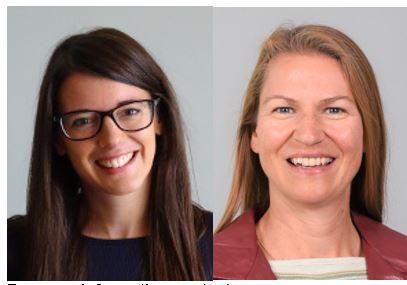Sneaky snacks creep in during COVID-19 pandemic
Beware of those snack attacks. A new study in Appetite has confirmed the small luxuries, from sweets and chocolate to salty treats, have helped to lift our spirits – and kilojoule intake – during COVID-19 lockdowns.
Researchers in England and Australia have gathered evidence about similar experiences in the UK and Victoria, Australia to warn about the effect of extended pandemic lockdowns on our eating behaviours.
While time at home provides more time for healthy food preparation, intake of high-energy density foods (HED) has risen for some – presenting at-risk adults with the prospect of managing weight gain, the psychology researchers warn.
“The new stresses created by the pandemic appears to be associated with reported increases in overall savoury and sweet snack intake,” says lead researcher Dr Nicola Buckland, who assessed dietary survey responses from 588 people during the first UK lockdown (May-June 2020).
Participants indicated whether their intake of tasty, calorific foods (e.g. chocolate, cake, ice cream, pizza) had changed during the lockdown. These are foods that people typically report to be difficult to resist and difficult to control intake of. Participants also completed questionnaires that measured individual eating styles.
“The findings showed that, in terms of dietary changes, not everyone responded the same way to the lockdown. Over half of the respondents (53%) reported increased snack intake, 26% reported decreased snack intake and 20% reported no changes to the amount of snacks they ate during the lockdown.
“When we looked at the participants’ eating styles (based on responses to the questionnaires), we found that participants who scored low in the ability to control cravings were more likely to report increased snack intake.”
Flinders University Professor of Psychology Eva Kemps says the first COVID-19 lockdown started in Victoria, Australia just after the UK research was conducted.
The 124 respondents in the Australian survey also reported changes in food intake and eating styles changed during the lockdown, as well as their perceived stress levels.
Similar to the UK findings, of the Australian respondents, 49% reported increased snack intake during the COVID-19 lockdown, and the remaining respondents reported either reduced snack intake (25%) or no change (26%).
“Increased snack intake was associated with higher levels of perceived stress, indicating that those who experienced higher levels of stress reported greater increases of sweet and savoury snack foods,” Professor Kemps says.
“Also, similar to the UK survey, participants with low craving control were most likely to report increased snack intake.”
The findings from the UK and Australian surveys show that for some people, especially those who have difficulty controlling food cravings, the COVID-19 lockdowns were a risky time period for increased food intake, the researchers say.
“Our findings support the use of strategies that can help people to manage their cravings, to minimise the risk of increased snack intake during the COVID-19 lockdowns.”
###
The article, Low craving control predicts increased high energy density food intake during the COVID-19 lockdown: Result replicated in an Australian sample (2021) by NJ Buckland and E Kemps has been published in Appetite (Elsevier) Vol 166, November 2021, 105317 DOI: 10.1016/j.appet.2021.105317
Media Contact
Professor Eva Kemps
[email protected]
Original Source
https:/
Related Journal Article
http://dx.





